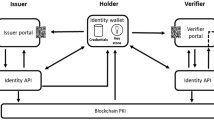Abstract
In addition to the “hard” rules of institutions and their implementation mechanism, the “soft” guidance of ethics is indispensable for achieving ecological compensation. Moreover, this “soft” guidance favors self-discipline regarding practical intervention and is also beneficial to the avoidance of “negative externalities”. In this paper, indicators of ecological compensation information ethics are introduced and hypotheses are presented and verified statistically using data on the Huainan city mining area (China). An analysis of the case study results showed that even though each indicator is significantly correlated with the overall satisfaction, the hypothesis regarding the relationship between the indicators “satisfaction with access to convenience” and “maturity of information revenue” was abnormal after regression model optimization. Furthermore, the relative importance of eight indicators in the optimal model was clarified, and the strength of the resistance of 10 indicators in the resistance diagnosis model was also observed. Therefore, this study highlighted the control of key protons and focuses on the accurate identification of resistance indicators. Additionally, it also showed that the avoidance of “negative externalities” results in effective ecological compensation, and favors its improvement.


Similar content being viewed by others
Data availability
It is availability of data and material.
References
Guoguo, L., & Xuemei, C. (2008). Ecological compensation mechanism of river basin from the perspective of economics. Journal of Shenzhen University, 25(06), 69–73.
Huai, Y. & Weiwei, L., (2001). Dual norms of information activities and their relationship. Journal of Central South University of Technology, 1, 79–82.
Jiaku, L. (2013). Digestion and proof of information ethics of new media. Library Theory and Practice, 170(12), 7–10.
Jianlan, X., & Quanliang, Y. (2009). Discussion on ethical issues and principles in library information service. Books and Information, 126(02), 95–97.
Junlan, L. (2008). Social function and realization path of information ethics. Foreign Social Sciences, 269(05), 41–45.
Lianyu, C. (2007). Information ethics: Concept connotation and characteristics. Journal of Intelligence, 7, 94–96.
Liling, X., & Quansheng X., (2007). Exploration of some problems in PAPA information ethics. Intelligence Theory and Practice, 2, 168–171.
Liang, W., & Kehao, Z. (2019). From environmental ethics to information ethics: The dissolution of ‘intrinsic value’. Research on Dialectics of Nature, 35(06), 62–67.
Lun, L., Baoxue, S., & Bo, L. (2008). Ethical constraints on the development of big data information value: mechanism framework and China focus. Journal of Social Sciences, Hunan Normal University, 47(01), 1–8.
Nelson, J. & Gorichanaz, T. (2019). Trust as an ethical value in emerging technology governance: The case of drone regulation. Technology in Society 59.
Ochollaa, D. N., Onyanchab, O. B., & Britz, J. (2010). Can information ethics be conceptualized by using the core/periphery model? Journal of Informetrics, 4, 492–502.
Taiwei, Y., & Shaohua, H. (2009a). Research status of information ethics in Taiwan: Concepts, issues and empirical studies. Journal of Lanzhou university, 37(05), 128–133.
Taiwei, Y., & Shaohua, H. (2009b). Research status of information ethics in Taiwan: Concepts, issues and empirical studies. Journal of Lanzhou University, 37(05), 128–133.
Toffler, A. (1984). The third wave. Beijing: Sanlian Bookstore, 50.
Turilli, M., & Floridi, L. (2009). The ethics of information transparency. Ethics and Information Technology, 2(11), 113–122.
Wei, C., & Jin, W. (2015). New approaches to the cultivation of information ethics literacy of college students. Intelligence Science, 33(10), 143–146.
Weizhen, G., & Jingjun, C. (2002). Reflections on some issues in the study of information ethics. Intelligence Theory and Practice, 2, 88–91.
Xiaoqing, Y., & Caifu, L. (2009). Research on the isomorphism of archival information ethics and archival information law. Journal of Archival Science, 189(03), 53–56.
Yanhui, H. (2003). On the relationship between information ethics and information legal system construction in China. Library and Information Work, 4, 38–42.
Yaowei, L. (2019). Ethical considerations for information security in the era of big data. Ethics and Civilization, 04, 84–92.
Yihua, Z. (2005). Information ethics of digital reference and its countermeasures. Library BBS, 3, 188–189.
Yingyuan, L., & Yumei, D. (2012). Innovation of ecological compensation mechanism to develop low-carbon economy. Productivity Research, 4, 4–5.
Zhengqing, Z., & Chenggang, Z. (2008). The fourth revolution: The end or reconstruction of modernity—the enlightenment of information ethics to artificial intelligence ethics. Journal of Wuhan University, 71(03), 177–184.
Funding
This work was supported by the following programs: the National Natural Science Foundation of China with the title ‘evaluation of coal miners' safety behavioral ability and its dynamic pre-warning under the interaction between individuals and environment’ (No. 51574010).
Author information
Authors and Affiliations
Contributions
The paper are wrote by first author He Gang and Corresponding author Qinfeng Xing. The Authors acknowledge anyone who contributed towards the article who does not meet the criteria for authorship including anyone who provided professional writing services or materials. The paper obtains the permission to acknowledge from all those mentioned in the acknowledgements section.
Corresponding author
Ethics declarations
Conflict of interest
All authors declare no conflict of interest.
Ethical approval
All authors accept the ethics approval.
Informed consent
All authors are consent to participate. All authors are consent for publication.
Additional information
Publisher's Note
Springer Nature remains neutral with regard to jurisdictional claims in published maps and institutional affiliations.
Rights and permissions
About this article
Cite this article
Gang, H., Xing, Q. Assessment of ecological compensation information ethics in China: A case study of the Huainan city mining area in China. GeoJournal 86, 2297–2304 (2021). https://doi.org/10.1007/s10708-020-10190-8
Published:
Issue Date:
DOI: https://doi.org/10.1007/s10708-020-10190-8




